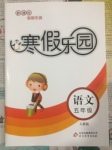题目内容
As ________ rule, apples are sold by ______ weight and eggs by _______dozen.
A.a; 不填;the B.a; the; the C.a; a; the D.the; 不填;不填
A
【解析】
试题分析:考查冠词。第一空用a泛指一条规则,第二空和第三空是by的用法,如果by后面的名称是抽象名词的时候就不加构成,如by weight按照重量;如果by后面的名词是单位名词那么就在单位名词前面加the,如by the dozen按照打。故A正确。
考点:考查冠词
点评:冠词的考查集中在定冠词the表示特指,不定冠词a/an表示泛指;以及冠词的一些特殊用法和固定词组如all of a sudden等,还有一些不使用冠词的情况,如抽象名词,物质名词前面就不要冠词。

 寒假乐园北京教育出版社系列答案
寒假乐园北京教育出版社系列答案As ________ rule, apples are sold by ______ weight and eggs by _______dozen.
| A.a; 不填;the | B.a; the; the | C.a; a; the | D.the; 不填;不填 |
B
It is the duty of every man to work. The life of a lazy man is of no use to himself and to others. The man who is too lazy to work is the man who is generally most ready to beg or to steal. Every boy, when he is young, should learn how to do some useful work.
But it is not enough that a boy should learn some kind of work. He should put his heart and soul completely into his work, and not waste his spare time. “Work while you work and play while you play” is as good a rule for young people as for the old!
There is no better help to diligence (勤奋) than the habit of early rising, and this, just like all other good habits, is most easily formed in youth. There is an English saying, “Lost time never returns”. This means that everybody must be diligent and make good use of his time. One must study hard when one is young so that one may make great progress, succeed in life and become useful to one’s country. Those who are diligent will never become beggars. Therefore, we can say that diligence is the mother of success.
【小题1】From the passage, we know that those who are too lazy to work will_________.
| A.waste their time |
| B.help others |
| C.become beggars or thieves |
| D.make progress some day |
| A.form the good habit of getting up early in youth |
| B.learn about some good habits |
| C.work while they work and play while they play |
| D.work all the time without playing |
| A.is diligent in his study |
| B.loves life |
| C.spends some time learning something |
| D.makes up for his lost time |
BEIJING , March 9 --- The central government will require an additional three years of use for official vehicles for ministers and governors to reduce the costs of purchasing new cars, media have reported.
The new rule has been applied among all Party and government departments nationwide, the Beijing News reported on Tuesday. The new rule has not yet been made public, said Li, a member of the Chinese People’s Political Consultative Conference National Committee.
Under the old rules, the cars used by minister-level officials could be replaced as often as every five years, Li said. These officials will also keep the same cars when they assume new posts, he added.
The new rule also reiterated(重申) that officials ranking below minister-or-governor-levels should not be allocated cars. The cars possessed by their departments should be used on demand.
“It violates the rules for lower-ranking --- even county-level-officials to be allocated cars,” Li said.
Purchases of vehicles for official use have been heavily investigated, as they account for a large expenditure (花费) of public funds every year.
A survey on the Web news www.ifeng.com found 64 percent of respondents believed the new rule will be difficult to carry out because it is related to officials’ interests.
“Local government departments had halted(中断) approvals for requests for such vehicles and had started to work on new quotas(指标) under the new rules,” Li said. “The future reform of official vehicle use will introduce market mechanisms and monetization.”
Premier Wen Jiabao said in the annual government work report on Saturday that expenditures on such vehicles will not increase in 2011 compared with a year ago.
Beijing’s standing deputy mayor Ji Lin last week said the municipal (市政的) government will release the number of vehicles for official use in the capital as early as at the end of this month.
Earlier this month, the Minister of Finance had published a rule regulating the budgets for such vehicles.
【小题1】What is the purpose of the new rule allocating vehicles among officials?
| A.To promote a low-carbon lifestyle. |
| B.To cut down the present huge expenditures of purchasing cars. |
| C.To make good use of budgets for official cars. |
| D.To solve the problem of severe traffic jam. |
| A.Every 3 years. | B.Every 5 years. | C.Every 8 years. | D.Every 10 years. |
| A.They can still possess special cars. |
| B.They can use their own private cars. |
| C.They can use cars whenever officially necessary. |
| D.They can be allocated second-hand cars. |
| A.Uncertain. | B.Optimistic. | C.Indifferent. | D.Passive |
| A.the government is determined to carry out the new rule |
| B.the new rule has not yet been made public |
| C.the new rule will benefit official’s interest |
| D.the new rule is applied to minister-level officials |